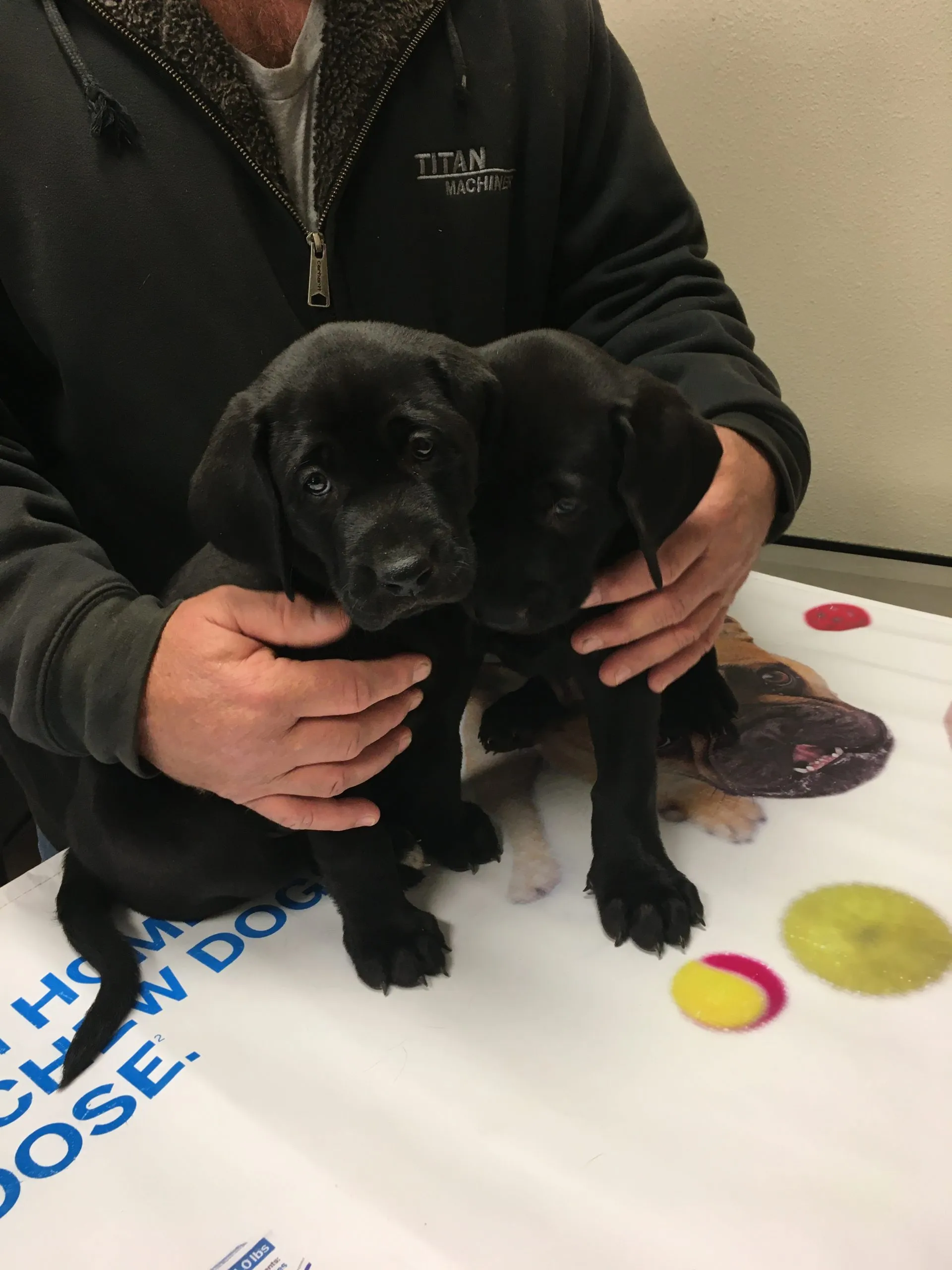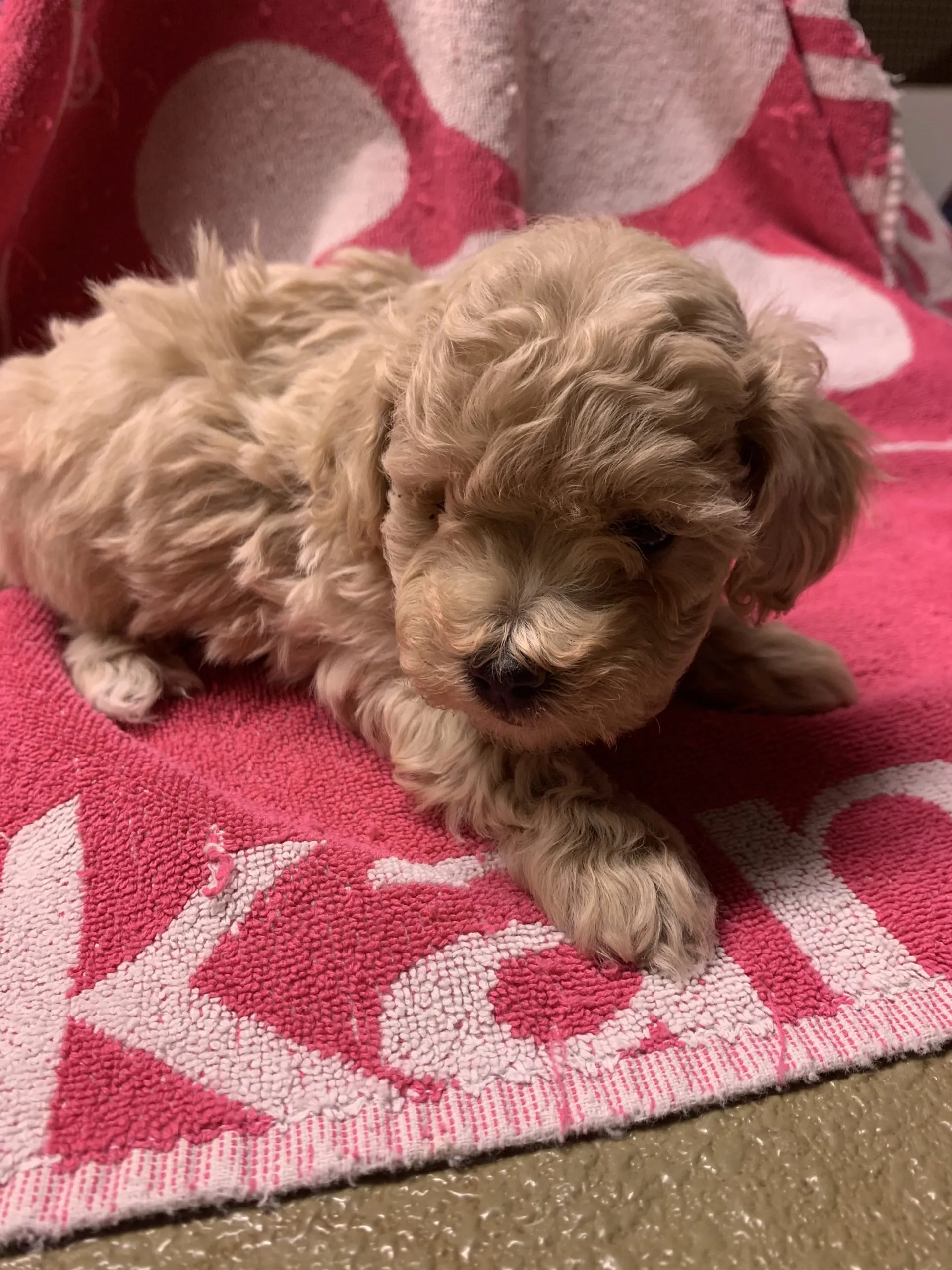For dedicated dog breeders, ensuring a successful and healthy litter is paramount. While natural breeding is often the first thought, advancements in veterinary reproductive medicine, particularly artificial insemination (AI), have revolutionized canine reproduction, making the process safer, more controlled, and often more successful. Among the various AI methods, surgical artificial insemination stands out for its high conception rates, offering a viable solution for challenging breeding scenarios. If you’re considering expanding your canine family or addressing fertility issues, understanding these specialized services and knowing how to find a reputable Canine Fertility Clinic Near Me is crucial for your breeding success.
What is Surgical Artificial Insemination (AI) for Dogs?
Surgical Artificial Insemination (Surgical AI) is a highly effective reproductive technique where a veterinarian directly deposits semen into the female dog’s uterus. Unlike other AI methods that might involve vaginal or transcervical approaches, surgical AI requires a minor abdominal incision. During the procedure, the dog is placed under general anesthesia at a specialized animal hospital or clinic. The abdomen is carefully opened, allowing the veterinarian direct access to the uterus, where the semen is then injected. In some specific cases, a small incision might even be made in the uterus itself, depending on the circumstances and the veterinarian’s assessment. Once the semen is injected, the abdomen is carefully sutured closed. This direct placement bypasses any potential cervical barriers or uterine environment issues that might hinder conception with other methods, offering the highest chance of pregnancy.
When is Surgical AI Recommended for Your Dog?
While other artificial insemination methods are less invasive and generally more affordable, they may not be suitable for all situations, especially when dealing with specific reproductive challenges or lower quality semen. Your veterinarian or a canine fertility specialist may recommend surgical AI under several circumstances to maximize the chances of a successful pregnancy. These include:
- Advanced Age of the Dam: Older female dogs often have reduced fertility or uterine health, making natural breeding or less invasive AI methods less effective. Surgical AI can circumvent some of these age-related challenges by ensuring direct semen delivery. Caring for elderly dogs requires specialized attention, and this extends to their reproductive health.
- Poor Semen Quality: If the male dog’s semen quality is compromised (e.g., low sperm count, poor motility, or morphology), direct uterine placement ensures more sperm reach the target, improving the odds. This is especially critical for frozen semen, which often has a lower viability rate after thawing compared to fresh semen.
- Use of Frozen Semen: Frozen semen, while offering flexibility for international breeding or preserving genetics, typically has a shorter lifespan and reduced motility post-thaw. Surgical AI is often the preferred method for frozen semen to achieve optimal conception rates.
- Low Female Fertility or Uterine Problems: Females with a history of difficult conception, specific uterine issues (such as scarring, mild infections, or anatomical abnormalities that impede sperm transport), or unexplained infertility may benefit significantly from surgical AI.
- Previous Failed Breedings: If a female dog has undergone multiple natural breedings or other AI attempts without becoming pregnant, surgical AI might be considered as a more direct and effective approach.
- Overcoming Physical or Behavioral Obstacles: Sometimes, physical disparities between dogs or behavioral issues prevent successful natural mating. Surgical AI removes these obstacles entirely.
The Crucial Role of Semen Management
Effective semen management is a cornerstone of successful artificial insemination, encompassing everything from collection to careful handling and storage.
Collection of Semen
For breeders planning to register puppies with organizations like the American Kennel Club (AKC), it is imperative that semen is collected and prepared by an AKC-approved site or a licensed veterinarian following specific guidelines. This ensures the integrity and traceability of the genetic material. The collection process is typically performed by experienced professionals to ensure the male dog’s comfort and the quality of the sample.
Shipping and Storage of Semen
When breeding dogs across distances, the proper transport and storage of semen are critical. Whether it’s fresh, chilled, or frozen semen, specialized shipping companies and protocols are employed to maintain viability. Frozen semen, in particular, requires highly controlled cryogenic storage to preserve its genetic integrity for extended periods, allowing for future breeding opportunities. A reputable canine fertility clinic near me should have established relationships with reliable shipping partners and state-of-the-art storage facilities.
Precision Timing: The Key to Surgical AI Success
For surgical AI to be successful, pinpointing the exact moment of peak female fertility is absolutely paramount. This requires meticulous cycle management and advanced diagnostic testing. Females are generally at their most fertile approximately four to six days after a significant surge in Luteinizing Hormone (LH). LH is the hormone that signals the female dog’s body to begin ovulating.
The only reliable way to detect this crucial LH surge and subsequently time the ovulation window is through a series of daily blood tests, typically involving both an LH assay and a progesterone assay. Progesterone levels rise predictably after the LH surge, providing a clear indication of ovulation and the optimal breeding window. Canine reproductive specialists use these hormonal profiles to determine the perfect day for the surgical AI procedure, maximizing the chances of fertilization.
 Veterinarian examining a puppy, emphasizing health checks for canine breeding.
Veterinarian examining a puppy, emphasizing health checks for canine breeding.
Comprehensive Pre-Breeding Health Checks and Fertility Testing
To further guarantee the health of a potential litter and the success of the procedure, comprehensive testing of the female dog (dam) is essential before surgical AI. These extensive tests not only help in timing the breeding but also identify any underlying conditions that might affect pregnancy or the health of the puppies.
Before any breeding procedure, a general health check is performed to ensure the dam is in excellent physical condition for pregnancy. This includes a thorough physical examination, blood work, and urinalysis. Proper nutrition, including the optimal nutrition for dogs, and maintaining a healthy weight are vital for reproductive health. Furthermore, genetic screening is a non-negotiable step to rule out inheritable diseases specific to the breed, such as conditions like hip dysplasia.
Beyond general health, specific fertility tests will be conducted. These include the blood tests (LH and progesterone assays) described above, along with vaginal cytology tests. Vaginal cytology involves microscopic examination of cells from the vaginal lining, which change in appearance throughout the estrous cycle, providing additional visual confirmation of the dog’s hormonal status and progression towards ovulation. If the tests indicate the female is not suitable for breeding or has reached her maximum fertility window, then surgical AI can proceed with the highest chance of success.
 Close-up of a veterinarian conducting diagnostic tests on a dog, crucial for fertility assessment.
Close-up of a veterinarian conducting diagnostic tests on a dog, crucial for fertility assessment.
Choosing the Best Canine Fertility Clinic Near You
When you’re searching for a canine fertility clinic near me, several factors should guide your decision to ensure the best possible care and outcome for your breeding program. The right clinic offers not just the service of surgical AI, but a comprehensive approach to canine reproductive health. It’s important to consider clinics that offer a range of services, from pre-breeding health evaluations and genetic counseling to ovulation timing, semen freezing, and post-whelping support. Additionally, ensure the clinic provides thorough follow-up care for the pregnant dam, including ultrasounds and advice on nutrition and general calming strategies for dogs during pregnancy.
Here’s what to look for:
- Veterinarian Expertise: Seek clinics with veterinarians who are board-certified theriogenologists or have extensive experience and specialized training in animal reproduction. Their expertise is invaluable for complex cases.
- Range of Services: A top-tier clinic should offer a full spectrum of reproductive services, including all forms of AI, progesterone testing, semen analysis, freezing, and storage, as well as management of high-risk pregnancies.
- Facility Quality and Equipment: Evaluate the clinic’s facilities. They should be clean, well-equipped with modern diagnostic tools (ultrasound, in-house lab for hormonal assays), and have sterile surgical suites.
- Success Rates: Inquire about their success rates for surgical AI, especially for cases similar to yours. While not a guarantee, a good track record indicates proficiency.
- Client Testimonials and Referrals: Positive feedback from other breeders can be a strong indicator of a clinic’s reputation and quality of care.
- Communication and Support: A good clinic will maintain clear communication, answer all your questions, and provide ongoing support throughout the breeding process. A consultation prior to breeding is essential to discuss your goals and the clinic’s protocols.
Conclusion
Surgical artificial insemination offers a powerful and highly effective solution for challenging canine breeding scenarios, significantly increasing the chances of conception where natural breeding or other AI methods might fail. For any dog breeder, understanding the nuances of this procedure—from semen management and precise ovulation timing to comprehensive health screenings—is vital. When planning your breeding journey, thoroughly researching and selecting a reputable canine fertility clinic near me staffed by experienced professionals is the most critical step. By partnering with experts, you can ensure the highest standards of care for your dam and maximize the potential for a healthy, successful litter. Always consult with a qualified veterinarian specializing in reproduction to discuss the best course of action for your beloved canine companion.
